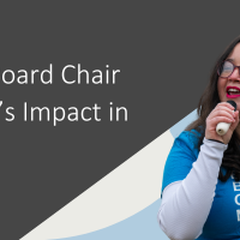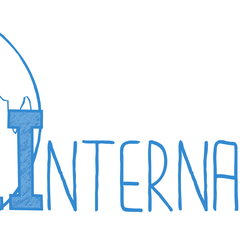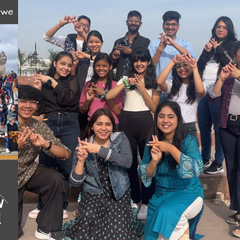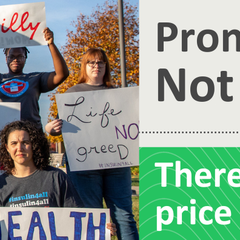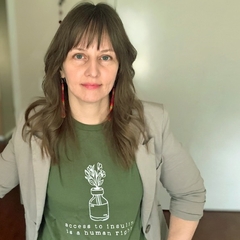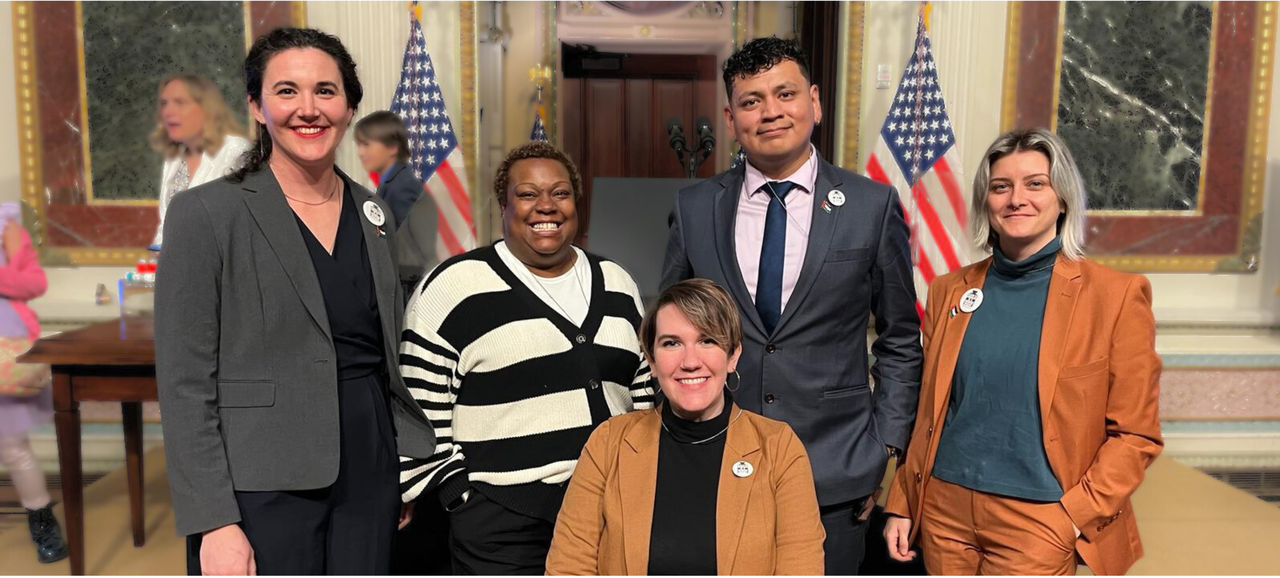
T1International Invited to White House Event
22 Apr 2024, 6:21 p.m. in #insulin4all USA, News & Statements by T1International
T1International advocates, Jesús Morales Sánchez (Communities of Color Working Group Co-Leader), Kristen Whitney Daniels (Federal Working Group Co-Leader), Lib Gatti (USA Advocacy Manager), and Shaina Kasper (Policy and Advocacy Director), were honored to be invited to a recent event at the White House focused on lowering healthcare costs. The event celebrated the success of the access to medicines movement in achieving a $35 monthly cap on out-of-pocket costs for insulin for Medicare Part D beneficiaries, allowing Medicare to negotiate drug prices directly with pharmaceutical companies, and more
As one of the first ten drugs selected by the government, Novo Nordisk short-acting insulin products Novolog and Fiasp vials and pens will have their price be negotiated by Medicare. This critical provision, a significant step towards making insulin more affordable for seniors living with diabetes, has set the stage for broader reforms in reducing the financial burden of prescription drugs for all Americans.
The momentum generated by these victories has catalyzed broader discussions and initiatives aimed at reducing the financial burden of prescription drugs for all Americans. It has also highlighted the urgent need for comprehensive solutions that increase transparency, promote competition, and hold pharmaceutical companies accountable for unjustified price hikes. As T1International's US Advocacy Manager, Lib Gatti, said, “The $35 insulin copay cap is a lifeline for many seniors, but we cannot stop here. We need to address the underlying issues that allow pharmaceutical companies to price-gouge patients and ensure that everyone, regardless of their age or insurance status, can access the medications they need to live healthy lives.”
One important action highlighted by Federal trade Commission Chair Lina Kahn at the April 3 event is calling out companies on bogus patents that stop cheaper medicines from entering the market and artificially inflating the costs of essential drugs. At T1International, we advocate for patent reform and for public pharmaceuticals and public options, creating more competition in the market and increasing national security by having more government oversight in the manufacture and distribution of essential medicines.
“Insulin is still being sold for over $300 a vial for too many patients in the US. This is in large part due to patent evergreening,” said T1International Policy and Advocacy Director Shaina Kasper. “The patent on insulin was sold over 100 years ago for just $1 because, as the discoverers said, ‘insulin belongs to the world.’ This has just not been the case and insulin remains unaffordable and inaccessible to too many people in the United States.”
Federal Working Group co-leader Kristen Whitney Daniels added, “For over two years, Congressional leaders have promised to hold a vote to cap the copay cost of insulin at $35/mo for people with all types of insurance. We have yet to see this promise through.” She continued, “We are calling on Congress to not just rest on their laurels but to take urgent meaningful action to make insulin affordable and accessible to all.”
Insulin accessibility has new meaning over the past few months as insulin shortages and discontinuations have plagued patients across the United States. Long-acting insulin Levemir has been discontinued and several short-acting insulins are in short supply. “Despite promises for insulin affordability for all patients in 2023, we are simply not seeing savings at the pharmacy counter” said Jesús Morales Sánchez, co-leader of the Communities of Color Working Group. “We will continue to fight until affordable and accessible insulin, and all essential medications, become a reality for everyone.”
Are you struggling with the costs of insulin and need support? We have compiled a list of resources that we hope might support you.
For more information, see our Policy Playbook.




